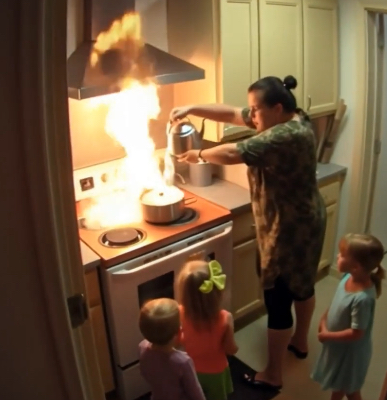In the quiet village where Rejoice now lived with her grandmother, life resumed with a slow, steady rhythm. Her grandmother, Mama Ebele, was a kind woman, weathered by time but rich in wisdom and compassion. She never prodded Rejoice to speak of the past; instead, she provided a comforting presence, allowing the young girl to heal at her own pace.
Mama Ebele had seen enough of life’s harsh realities to understand that healing wounds—especially those that ran deep within—required patience. Every morning, she would call Rejoice to join her in the garden, where they tended to the vegetables and herbs. It was during these peaceful moments, surrounded by the whispering leaves and the earthy scent of soil, that Rejoice began to find solace.
One afternoon, as they were harvesting tomatoes, Mama Ebele spoke in her gentle voice, “My child, the world can be cruel, but it is also vast and full of other possibilities. Your scars do not define who you are inside.”

Rejoice nodded, brushing her fingers over the tomatoes, feeling their smooth skin. “But, Mama, I can never forget what happened,” she replied softly.
“You don’t have to forget, Rejoice. Remembering is part of healing. But don’t let it consume you. Let it be the soil from which you grow stronger,” Mama Ebele advised, her eyes filled with understanding.
Her grandmother’s words stayed with her, and slowly, Rejoice started to find her voice again. She began attending the village school where she was welcomed warmly by the other children and teachers. Although shy at first, Rejoice’s bright mind and eagerness to learn soon made her a favorite student.
Her teacher, Mr. Okoro, was particularly impressed by her resilience and often encouraged her to express herself through writing. “Words have power, Rejoice. They can heal, educate, and inspire,” he said, handing her an empty notebook one day.
That notebook became Rejoice’s sanctuary. She filled its pages with poetry, stories, and dreams—an outpouring of her soul. Writing became her way of processing her emotions, a bridge between her past and the future she envisioned.
Years passed, and Rejoice blossomed into a young woman, determined to fulfill the vow she made under the stars. She excelled in her studies, earning a scholarship to a prestigious university in the city. Her grandmother’s pride was immeasurable as she watched her granddaughter leave for the city, carrying with her the hopes and dreams of their family.
In the city, Rejoice’s past lingered in her mind, but it no longer held her captive. With each achievement, she pushed the boundaries of what was expected of her, fueled by the promise she made to herself that fateful night.
One day, as she walked through the bustling streets of the city, Rejoice received an unexpected phone call. It was a neighbor from Aba, informing her that Aunt Monica had suffered a stroke and was now bedridden, dependent on others for care.
Fate had indeed turned a curious corner. Rejoice, now a successful journalist and writer, found herself standing at the threshold of forgiveness and choice. She decided to visit her aunt.
In the dim room where Monica lay, frail and silent, Rejoice sat beside her, holding her hand. The once harsh lines on Monica’s face had softened, and her eyes were filled with a mixture of regret and humility.
With a steady voice, Rejoice spoke words she never imagined she could say, “Aunt Monica, I forgive you. I hope you find peace.”
From that day, Rejoice extended her kindness to the woman who once only showed her cruelty. In doing so, she set herself free, feeding not just Monica’s body but also her own spirit—nourishing it with the compassion and strength that had grown within her against all odds.



